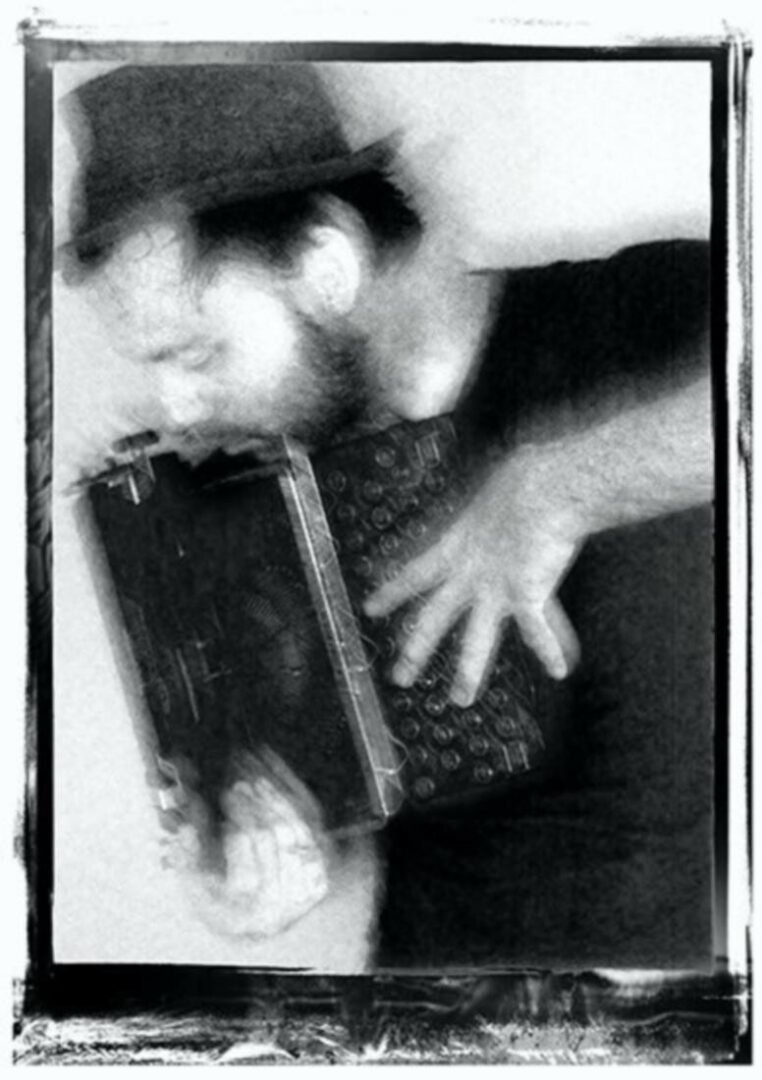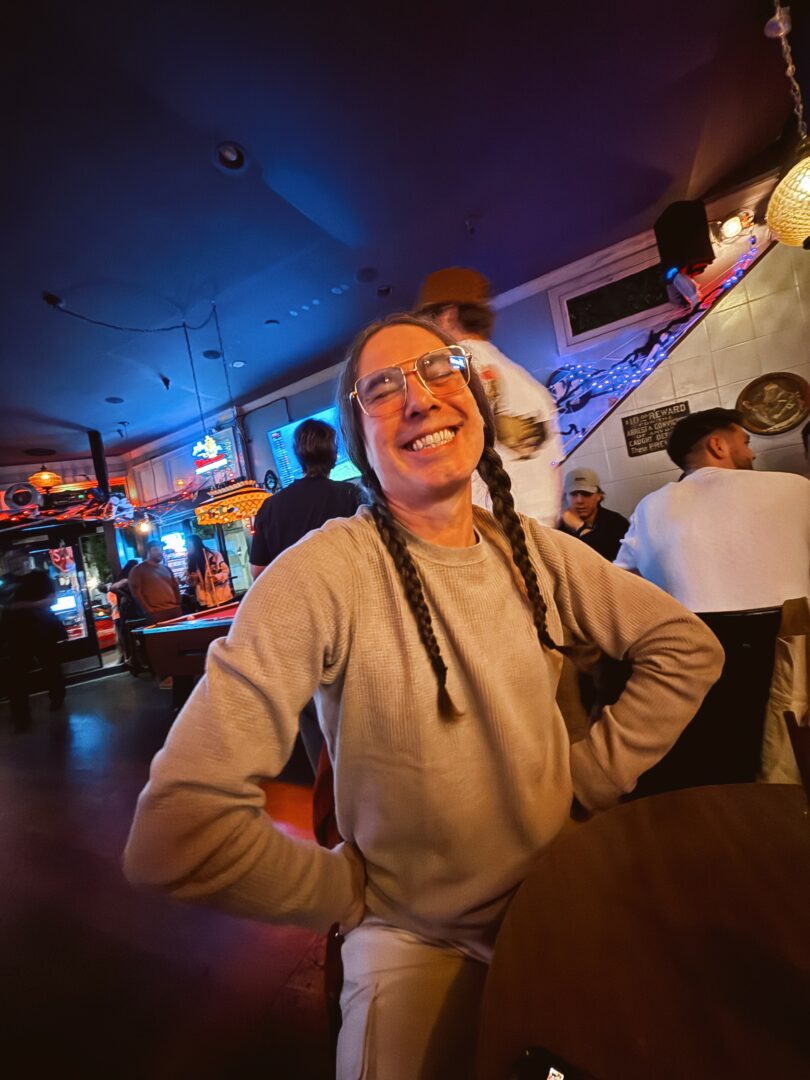We were lucky to catch up with Aaron Lepley recently and have shared our conversation below.
Hi Aaron, so excited to have you with us today, particularly to get your insight on a topic that comes up constantly in the community – overcoming creativity blocks. Any thoughts you can share with us?
If you ever feel bereft of ideas, there are countless ways to generate them out of thin air. One of the silliest things I hear artists say is that they haven’t produced any work because they’re “uninspired,” or that they’re waiting for their muse. The first thing you need to do is sit down and get to work. You’re not going to accomplish anything by sitting around wondering when the next idea will present itself.
If you pick up a guitar and nothing works, pick up a different instrument. And if you only play one instrument—even better. A foreign instrument can reignite the excitement you felt learning your first one. The tactile differences can open new pathways, spark fresh perspectives, or help fill in creative blanks. You might come up with ideas you never would have on your primary instrument.
Musically, there are endless ways to create something from nothing. One method I use involves dice: I assign each of the twelve pitches of the chromatic scale to a twelve-sided die. If I want to generate dyads, I use two dice; triads, three. It’s a fun and simple way to come up with melodies, chords, and harmonies without overthinking.
Another favorite approach is the Cut-Up Technique—originally developed by the Dadaists, later adapted and popularized by William S. Burroughs and Brion Gysin, and championed by David Bowie. The process involves cutting up text and rearranging the fragments—words, sentences, or paragraphs—into new sequences to uncover unexpected meaning. The same idea can be applied to film, painting, and music—both written and recorded—and it’s a brilliant way to bypass logic and rediscover spontaneity.
A third idea is when I’m trying to generate chords, I’ll often just throw my hands down on the piano willy-nilly—doing my best to forget everything I’ve learned—and write down every note or chord that sounds interesting. I keep going until I’ve built a solid collection, then start playing them in different orders, looking for connections, melodies, or progressions to build from.
Also, exploring modes and scales that are foreign to you can open your eyes to endless possibilities. Step outside the familiar major and minor framework—experiment with octatonic and whole-tone scales, or study scales and tunings from different countries and cultures. Each one offers its own character, tension, and color, and can instantly shift the emotional weight of a piece. Sometimes a single new interval or mode is all it takes to spark an idea and pull you out of a creative rut.
Right now, I’ve stepped back slightly from music to complete a novel I began years ago but had to set aside during grad school. Returning to it with fresh eyes has been deeply rewarding. It activates a different creative channel and, in turn, makes returning to music feel even more vital and inspired.
Honestly, at the end of the day, it’s all composition to me—no matter the medium. It’s about organizing parts to create a whole, whether I’m painting, writing, making dinner, or making music.

Appreciate the insights and wisdom. Before we dig deeper and ask you about the skills that matter and more, maybe you can tell our readers about yourself?
I’m a composer, performer, and educator based in Portland, Oregon. My music spans a wide range—from orchestral works and small ensemble pieces to electronic compositions and hybrid forms. I hold a Master of Music in Composition from the University of South Florida, and my work includes original music for advertisements, film, and multimedia art installations. I also perform, write, and record with my wife, Kim Stein-Lepley, in our band hyperbad.
What does all this mean exactly? It means I’m constantly creating—always searching for new ways and new places to bring sound to life. I’ve been pursuing music since I was twelve years old, and despite every frustration or setback, I’ve never stopped. There have been moments when I’ve felt defeated or thought about walking away, but deep down, I know I never will. You have to stay patient, persistent, and remind yourself that something better is always around the corner.
It’s not an easy livelihood. Finding consistent work can be daunting, and you often have to wear many hats—meeting people, building connections, and promoting your work while putting in endless hours composing and recording. Over the years, I’ve done just about everything to keep going: cleaned apartments, mended fences, dug ditches, worked hotel front desks, pumped gas, made pizza, poured beer, washed dishes, bussed tables—you name it. When opportunities in your field finally arrive, they’re that much more meaningful because you’ve fought for them.
If you had to pick three qualities that are most important to develop, which three would you say matter most?
The three qualities I’ve found most helpful and impactful are curiosity, versatility, and discipline.
Curiosity: As artists, we must be detectives—always seeking the source. If you’re drawn to an artist, learn everything you can about their work and creative process from start to finish. Explore their influences—what they listen to, read, the visual art they admire, the films they love. Then research those artists, and follow the same thread with them. It’s an easy way to discover new works you might never have stumbled upon otherwise. Also, don’t confine your interests to one genre or medium. The worst thing an artist can do is pigeonhole themselves through narrow-mindedness. Always study, ask questions, and try new things.
Versatility: The ability to work across different instruments and mediums is invaluable. Learning new instruments isn’t just rewarding—it expands the way you think about sound and structure. Each instrument has its own logic, and getting your hands on something unfamiliar can open new creative doors. Beyond that, I’ve always believed in cross-pollination between the arts. I write, paint, draw, sketch, and collage. Exploring other mediums keeps me curious and flexible, and it often feeds directly back into my music. Stepping outside your main discipline helps you return to it with new perspective and renewed energy.
Discipline: Being disciplined and sticking to a regular schedule of work and practice will make you a better artist and help you produce more material. Honestly, I’m not always the best at this, but I know it works. I rely on this mindset when I’m facing a deadline—it’s always been effective. Discipline and persistence go hand in hand. Work incessantly, and don’t leave projects unfinished. Conversely, if you’re struggling to start something new, there’s nothing more intimidating than a blank page. When I find myself there, I’ll doodle, make a to-do list, or even practice my penmanship—anything to “dirty up” the page. Once it’s no longer blank, I can finally breathe and start sketching ideas.

Okay, so before we go we always love to ask if you are looking for folks to partner or collaborate with?
I’m always interested in meeting new artists to collaborate with. Collaboration is crucial for growth and learning—it pushes you to think differently and reach ideas you’d never arrive at alone.
I’m in constant collaboration with my wife, Kim Stein-Lepley. Whether we’re writing music together for hyperbad, working on one of my projects, or just deciding what to make for dinner, her influence informs almost everything I do. Recently, I’ve been collaborating with artist Davey Whitcraft, creating music for his videos and installations, and with photographer Daniel Newcomb on a series of multimedia exhibitions and installations.
I truly thrive when working with others. Collaboration sparks new energy and opens creative doors that wouldn’t exist otherwise. If you’re interested in working with me, you can connect through my website and social links below.
Contact Info:
- Website: https://www.aaronlepley.com/
- Instagram: https://www.instagram.com/aaronlepley/
- Other: https://aaronlepley.bandcamp.com/
https://hyperbad.bandcamp.com/
Image Credits
Restaurant scene- Kim Stein-Lepley
Typewriter accordion- Daniel Newcomb
Alameda Street Scene- Kim Stein-Lepley
so if you or someone you know deserves recognition please let us know here.




